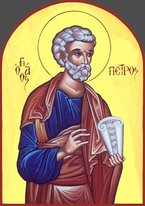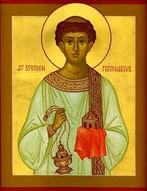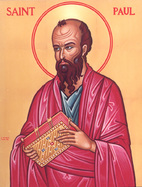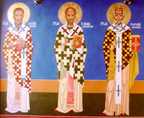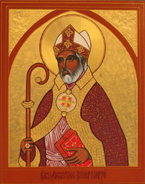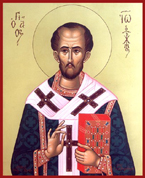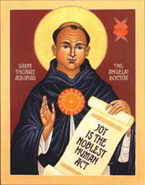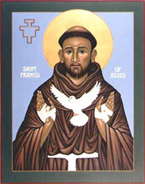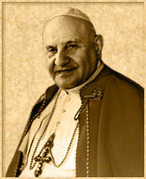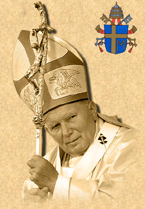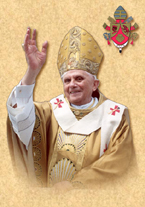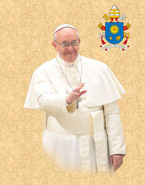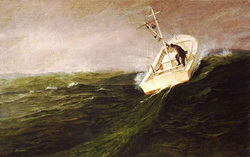 Nineteenth Ordinary Sunday Year A It doesn't take much to set people into a panic mode these days. As modernisation creeps in and people become increasingly "in control" of their own fates because of scientific advancement, ironically, the more anxious people seem to get about their safety, their security and the certainty of their survival. It is strange, the kind of fear that modern life begets. Some recent globally publicised occurrences have now caused a serious panic and anxiety to set in, if not anywhere else, in our part of the world. This has been brought about by the disappearance of the MH370 aircraft and most recently the shooting of the MH17 aircraft. And as if that was insufficient, the onslaught of the Ebola virus began, which is now a situation classified as a "global emergency" by the World Health Organisation. These catastrophes have caused a good number of Malaysians to refrain from traveling on long-distance hauls for fear of their own lives. Put simply, people are now afraid to die either of a plane crash, a plane being shot down or a viral attack. I have personally encountered a good number of people who have withdrawn abruptly from their travel plans in their next few months. And as I write down this homily, paradoxically, thousands of youths, religious, deacons, priests and bishops are travelling to South Korea for the Asian Youth Day -- yes, anyone of whom might get killed in a plane crash, accident, viral attack or perhaps simply food poisoning. The Gospel reading today gives us a peek into the crisis situation experienced by the disciples of Jesus while they were out at the lake late in the night. The winds were strongly beating against the direction of their boat, and the waves must have been strong and high. It was a disaster waiting to happen at any time. Obviously, they were in a state of panic and anxiety was high. And in this state of fear, they had failed to recognise their Master who was walking (on water!) towards the boat in the paleness of the night, thinking that He must have been a ghost! The problem is, even when Jesus came and told them to not be afraid, the winds and the waves did not become still immediately after that. So Jesus, in effect, was comforting His disciples at a most inappropriate moment. To tell someone to not be afraid when his life is obviously in jeopardy? Quite silly, really. The situation was obviously out of control, and if ever there was a right time to panic, it was now. But still came that voice, "Take courage, it is I; do not be afraid." In the midst of our crises, it would seem like Jesus would say the very same thing to any of us, to not be afraid and to take courage. But yet, like Peter, it would be difficult for many of us to keep our gaze on Jesus and to find our confidence and sense of safety in Him. Fear, insecurity and panic will distract us and cause us to sink. And because of this, we would rather not step out of the boat so that we can "minimise our risks" and "cut back on our losses". If possible, we would not want to walk voluntarily into a trap of having our security seized from our control so that we have little or no more direct control over our fate. So we would rather not take any risks. Many people believe in God and in Jesus Christ, His Son. But having faith in Him and placing our lives into His hands is a whole other story. He can call Himself the Captain of the boat if he wants to, but we are still going to be the ones to decide how it is to be steered. The allegiance that we pay Him is little more than lip service because when it comes to the crux of the matter, we refuse to relinquish control. Our relationship with Him is one of belief without faith. We like Him, but we refuse for Him to have a say in our fate. So at the sight of risk and danger, motivated by fear, we immediately seize control of our boats. The ability to relinquish control over life's situations is what separates the one who merely believes in Jesus from the one who has FAITH in Him. The one who is willing to risk himself by following Jesus when He says "Do not be afraid" is the one whose life is motivated by freedom in Christ and not by fear. He bases his decisions on his security in God's sovereignty, not in his own meagre ability. Does God always obliterate the dangers and risks faced, or the crises suffered, by the man who has authentic faith in Him? Absolutely not. Most often, he permits for dangers to linger and trouble to be impending, and the one who puts his faith in Him may very well suffer the consequence of placing his trust in God. But yet, his peace of mind comes not from the fact that he is "safe"; it comes from knowing that Jesus is with Him in the midst of that storm. So there are two kinds of people who know Jesus Christ; one, the kind who believe in Him academically but continue to steer their own boats because they cannot trust Jesus to keep them safe, and another, the kind who entrust their lives into the hands of Jesus as Captain of their boats and who would be willing to sink with Him if that's what it ultimately takes. The first kind experience peace only when they know they are still in control, and their lives are motivated by fear, insecurity, constant struggle with uncertainty. The second kind experience a deep and constant peace because they know, come what may, the presence of Christ abides with them, and this presence is a gift that surpasses the value of self-preservation. In the final analysis, our sense of control is little more than an illusion. If God so willed that our time on earth was over at any moment, our lives would be demanded of us, and it wouldn't even have to take a viral outbreak, a plane crash or an act of terrorism. Perhaps a simple mosquito bite would do. So much for deciding on our own fate... oh, the silly creatures that we are. A related song sung by an East Malaysian community this morning which touched me:
1 Comment
|
Categories
All
Archives
December 2021
|
|
FOLLOW DEACON SHERMAN DEACON'S FORMATION FB GROUP
© 2021 Sherman Kuek. All rights reserved.
|

 RSS Feed
RSS Feed
